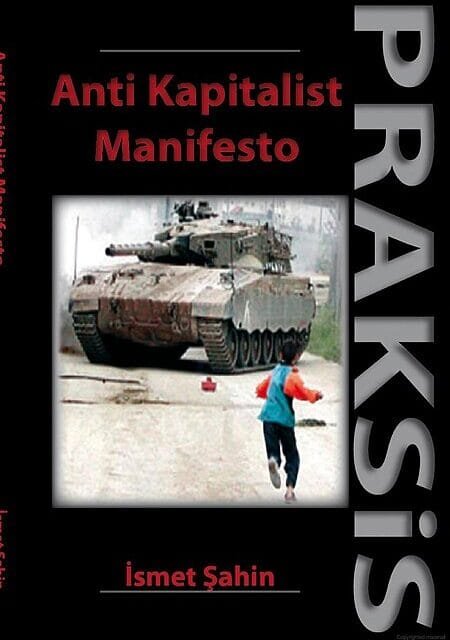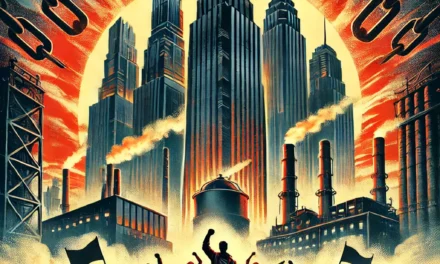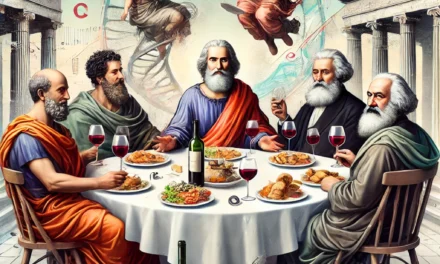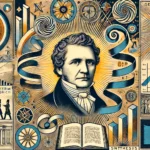
Anti Kapitalist Manifesto

Anti Kapitalist Manifesto by Ismet Şahin
The Anti-Kapitalist Manifesto by Ismet Şahin is not merely a political critique; it is a philosophical exploration of the dialectics of human history, the contradictions of capitalism, and the pathway towards revolutionary transformation. Grounded in a Marxist framework, Şahin’s manifesto interrogates the nature of capitalist exploitation, the failures of past socialist movements, and the philosophical underpinnings that shape revolutionary thought.
Continuity of Tradition in Marxist Thought
In Gelenek Sürüyor (The Tradition Continues), Şahin begins by situating capitalism within the broader historical continuum of exploitation. He emphasizes that capitalism, far from being an aberration, is part of a longstanding tradition of class oppression. This tradition, however, is not static but dynamic, driven by the dialectical forces of history. The class struggle, according to Şahin, is the engine of historical progress. His analysis highlights that the capitalist mode of production, while evolving, is bound to unravel under the weight of its internal contradictions, in line with Marx’s historical materialism.
The Role of Philosophy in Revolutionary Praxis
In Felsefenin Gizi (The Mystery of Philosophy), Şahin turns his attention to the role of philosophy, critiquing the detachment of bourgeois thought from material reality. He challenges the legacy of idealist metaphysics, particularly Hegel’s dialectics, which, while revolutionary in form, are seen as insufficiently materialist. Şahin’s critique of philosophy echoes Marx’s Theses on Feuerbach, where Marx declares that “philosophers have only interpreted the world, in various ways; the point, however, is to change it.” Şahin asserts that the abstract philosophizing of bourgeois intellectuals obscures the material conditions that underpin human suffering and exploitation. Thus, philosophy must be repurposed as a tool for revolutionary praxis, grounded in the lived realities of the proletariat.
Hegel’s Dialectics: A Source of Inspiration and Limitation
Ussal Devrim ve Hegel (Rational Revolution and Hegel) delves deeper into the dialectical method, which is central to both Hegelian and Marxist thought. Şahin acknowledges Hegel’s contribution in recognizing the dialectical nature of reality—that history unfolds through contradictions and negations. However, he critiques Hegel’s idealism, which locates the resolution of these contradictions in the realm of thought rather than in material conditions. Marx’s materialist inversion of Hegel, which grounds the dialectic in the dynamics of class struggle, is, for Şahin, the key to unlocking revolutionary potential. The revolution, Şahin argues, is not merely a philosophical concept but a material inevitability, driven by the contradictions inherent in capitalist production.
Utopia and the Dangers of Idealist Thought
In Bir ‘Filozofun’ Kurgul Cennet Arayışı (A Philosopher’s Search for a Fabricated Paradise), Şahin critiques utopian socialism and idealist intellectuals who seek to construct imaginary worlds detached from the realities of class struggle. This section serves as a warning against the dangers of idealism in the revolutionary movement, which can derail the fight for material change by focusing on abstract visions of a perfect society. Şahin asserts that any revolutionary philosophy must remain grounded in the material realities of the oppressed, resisting the temptation to retreat into intellectual abstraction.
Historical Materialism and the Philosophy of Revolution
Marksist Tarih Kuramı (Marxist Theory of History) reaffirms Marx’s theory of history as a dialectical process driven by class antagonisms. Şahin argues that capitalism is not an eternal system but a historical phase that, like all previous modes of production, will ultimately collapse. His engagement with historical materialism is philosophical in its depth, as he positions the working class as the agent of historical change. According to Şahin, the proletariat, through its revolutionary activity, brings about the synthesis of historical contradictions—the creation of a classless, socialist society. This chapter is a meditation on the nature of historical necessity and the role of human agency in shaping the future.
In İhanete Uğrayan Devrim (The Betrayed Revolution), Şahin reflects on the philosophical implications of failed revolutions. Here, he critiques the deviations from Marxist principles that led to the collapse of socialist experiments, particularly in the Soviet Union. This analysis is both historical and philosophical, as Şahin grapples with the contradiction between the theoretical ideals of Marxism and the practical realities of its implementation. He underscores the importance of maintaining a commitment to revolutionary principles, warning against bureaucratic authoritarianism and the co-optation of socialist movements by capitalist interests.
The Dialectics of Capitalist Crisis
In Uçurumun Eşiğindeki Kapitalizm (Capitalism on the Brink), Şahin explores the inherent contradictions within capitalism that drive it towards crisis. This section is a philosophical meditation on the nature of capitalist crisis, rooted in Marx’s analysis of overproduction, exploitation, and alienation. Şahin argues that capitalism’s self-destructive tendencies—its drive to commodify every aspect of human life, its exploitation of labor, and its unsustainable environmental practices—will ultimately lead to its downfall. He views capitalist crisis not as an anomaly but as a necessary outcome of the system’s internal contradictions, which can only be resolved through revolutionary transformation.
Kaçınılmaz Olanı Görmek (Seeing the Inevitable) deepens this analysis, arguing that the collapse of capitalism is not only inevitable but desirable. Şahin critiques reformist solutions that seek to soften the edges of capitalism without addressing its fundamental contradictions. This chapter is a philosophical call to action, urging revolutionaries to recognize the inevitability of capitalism’s collapse and to actively work towards its demise.
Democracy, Socialism, and the Philosophical Basis of Liberation
In Demokrasiyi ve Sosyalizmi Kazanacağız (We Will Win Democracy and Socialism), Şahin philosophically critiques capitalist democracy, which he views as a facade that masks the true power dynamics of class society. He argues that real democracy can only be achieved through socialism, where political and economic power is in the hands of the people. This section bridges political theory and philosophy, positing that socialism represents the highest form of democracy—a system where the collective will of the people can be realized without the distortions of capitalist power structures.
In Dinle Beni Büyük Apolet (Listen to Me, Great Epaulet), Şahin’s philosophical critique extends to militarism and authoritarianism. He sees the state’s use of military force as a key mechanism for maintaining capitalist dominance, particularly in suppressing working-class uprisings. Militarism, in this sense, is not just a political tool but a philosophical reflection of the violence inherent in the capitalist system. Şahin argues that the dismantling of military structures is essential to any revolutionary transformation.
Ethnic Struggles and the Philosophy of Solidarity
Bulgaristan’da Türkler, Türkiye’de Kürtler (Turks in Bulgaria, Kurds in Turkey) and Kürt ve Türk Ezilenleri Teröre Karşı (Kurdish and Turkish Oppressed Against Terror) explore the intersection of ethnic oppression and class struggle. These sections are philosophical in their examination of how capitalist systems exploit ethnic divisions to maintain power. Şahin advocates for a philosophy of solidarity that transcends ethnic and national boundaries, arguing that the liberation of oppressed ethnic groups must be integrated into the broader struggle for socialism. This is a radical rethinking of Marxist internationalism, where the fight against ethnic oppression is seen as inseparable from the class struggle.
Imperialism, War, and the Global Philosophy of Capitalism
In Sosyalizm ve Savaş (Socialism and War), Şahin extends his philosophical critique to global capitalism, particularly its imperialist and militaristic dimensions. He draws on Lenin’s theory of imperialism to argue that global capitalism perpetuates war and conflict as a means of sustaining its hegemony. The vast military expenditures of capitalist states, particularly the United States, are philosophically framed as a manifestation of the violence inherent in the capitalist mode of production. Şahin argues that socialism, by dismantling the profit motive, offers the only path to global peace and cooperation.
Conclusion: The Philosophical Necessity of Revolution
The Anti-Kapitalist Manifesto concludes with a philosophical affirmation of the necessity of revolution. Şahin argues that capitalism, with all its contradictions, has created the conditions for its own demise. The task of revolutionaries is not to reform capitalism but to dismantle it entirely. The manifesto is ultimately a philosophical treatise on the dialectics of history—an exploration of how contradictions within the capitalist system will give rise to a new socialist order. Şahin’s vision is one of radical hope, rooted in the belief that the proletariat, through revolutionary praxis, can bring about the emancipation of humanity.
Philosophical Evaluation: Şahin’s Anti-Kapitalist Manifesto offers a deeply philosophical exploration of the nature of capitalism, the role of historical materialism, and the necessity of revolutionary action. His engagement with Hegelian dialectics, Marxist theory, and critiques of utopian socialism reflect a profound understanding of the philosophical foundations of revolutionary thought. However, his deterministic view of history, which posits the inevitable collapse of capitalism, could be critiqued for underestimating the adaptability of capitalist systems and the complexities of revolutionary praxis. Nonetheless, the manifesto serves as a powerful philosophical call to action, grounded in a materialist understanding of history and a vision for a just and egalitarian future.
Review
86%
Philosophical Evaluation Şahin’s Anti-Kapitalist Manifesto offers a deeply philosophical exploration of the nature of capitalism, the role of historical materialism, and the necessity of revolutionary action. His engagement with Hegelian dialectics, Marxist theory, and critiques of utopian socialism reflect a profound understanding of the philosophical foundations of revolutionary thought. However, his deterministic view of history, which posits the inevitable collapse of capitalism, could be critiqued for underestimating the adaptability of capitalist systems and the complexities of revolutionary praxis. Nonetheless, the manifesto serves as a powerful philosophical call to action, grounded in a materialist understanding of history and a vision for a just and egalitarian future.






















